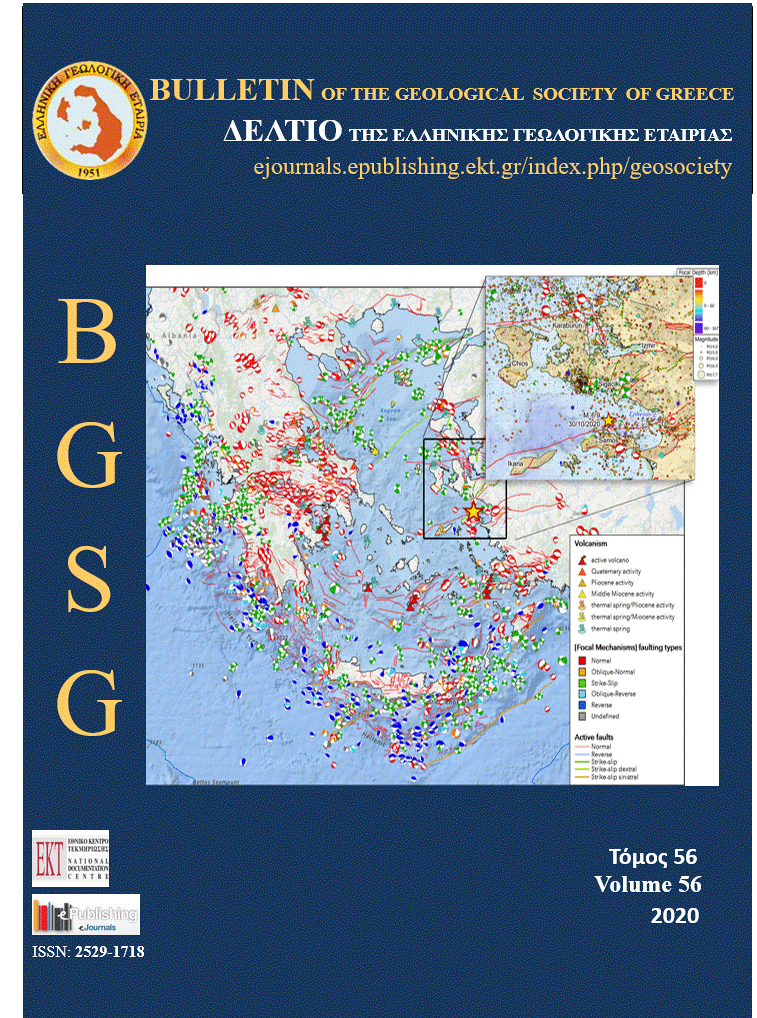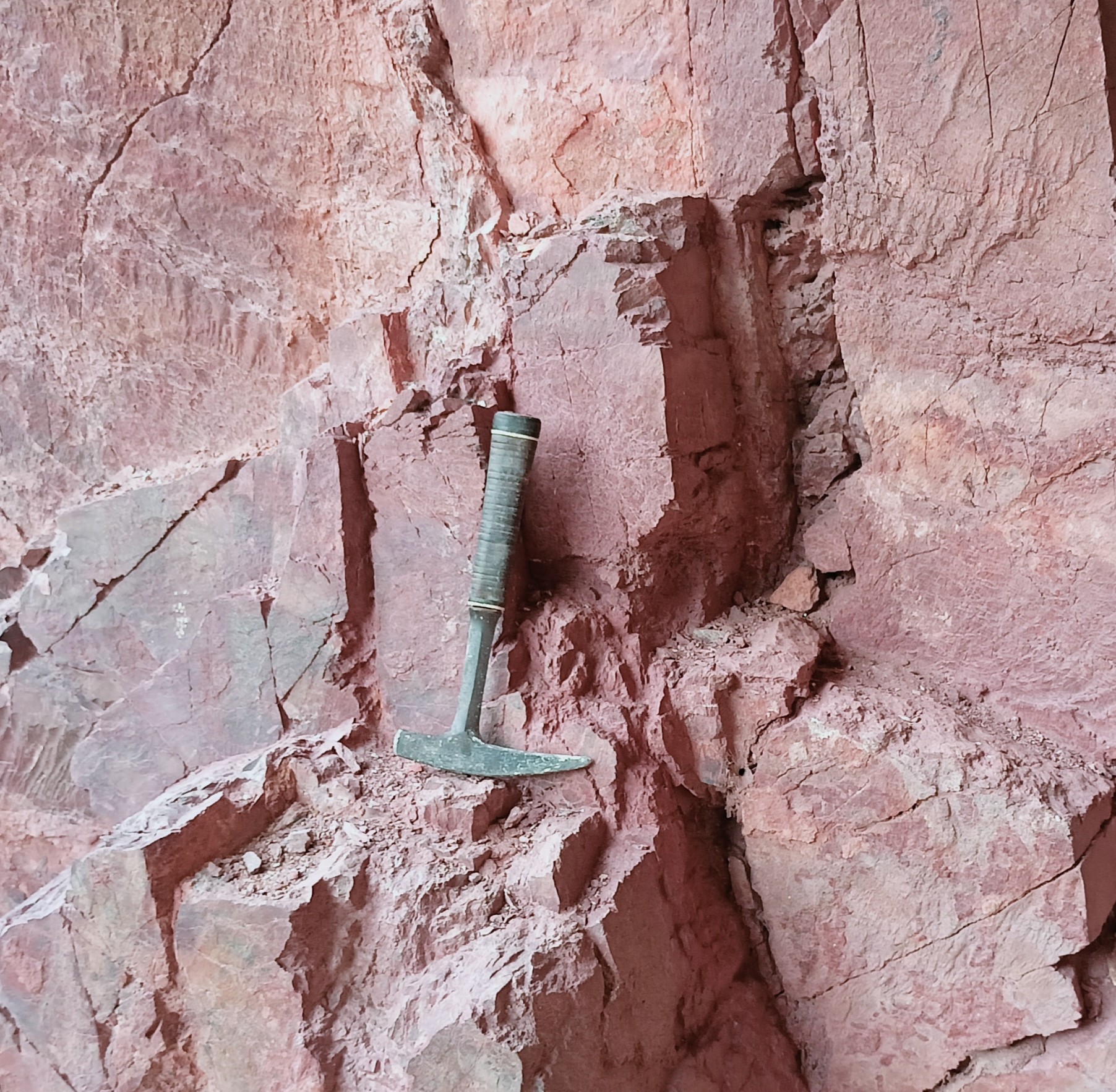Urban geology: educational proposal for Geoscience. a case study from the inner city of Athens, Greece.

Abstract
The limited exploitation and low understanding of geological notions, in modern education in physical sciences, motivated the planning of research procedures about the understanding of rock formations, of recognizing rocks, of informing about geological and hydrographic potential, for students of secondary school of Attica, using techniques entailed in the scientific/educational methodology by inquiry, suggesting educational walking paths through the historical center of Athens. Selected places of the walk trail served our educational aims. Via the educational intervention, students improved their understanding of geological notions, their creativity, their cooperation and their critical thinking. The educational walk trail motivated the students’ interest in the science of geology.
Article Details
- How to Cite
-
Kontokostas, G., Antonarakou, A., Fountopoulou, M., Drinia, H., & Lozios, S. (2020). Urban geology: educational proposal for Geoscience. a case study from the inner city of Athens, Greece. Bulletin of the Geological Society of Greece, 56(1), 133–146. https://doi.org/10.12681/bgsg.21002
- Issue
- Vol. 56 No. 1 (2020)
- Section
- Geosciences in Education and Geosites

This work is licensed under a Creative Commons Attribution-NonCommercial 4.0 International License.
Authors who publish with this journal agree to the following terms:
Authors retain copyright and grant the journal right of first publication with the work simultaneously licensed under a Creative Commons Attribution Non-Commercial License that allows others to share the work with an acknowledgement of the work's authorship and initial publication in this journal.
Authors are able to enter into separate, additional contractual arrangements for the non-exclusive distribution of the journal's published version of the work (e.g. post it to an institutional repository or publish it in a book), with an acknowledgement of its initial publication in this journal. Authors are permitted and encouraged to post their work online (preferably in institutional repositories or on their website) prior to and during the submission process, as it can lead to productive exchanges, as well as earlier and greater citation of published work.



